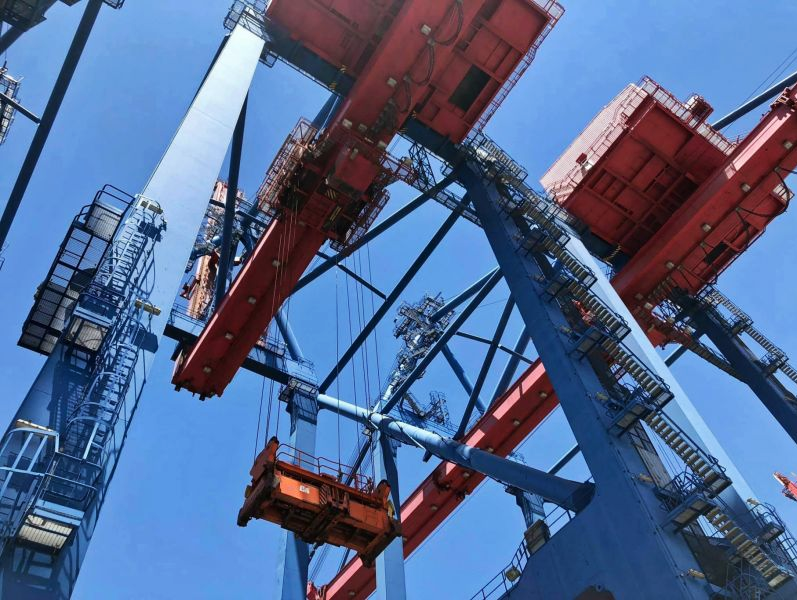
Picture from the port of Beirut giant cranes. (Credit: Philippe Hage Boutros/L'Orient-Le Jour)
The computer system at the Beirut Port's customs administration broke down on Wednesday, temporarily paralyzing control operations on goods entering and leaving the, but was fixed at the end of the day, said a spokesman for the customs directorate.
The spokesman added that the transit of goods returned to normal on Thursday with "a certain level of congestion" due to the accumulated backlog.
The system was down from 7 a.m. to 10:30 a.m. on Wednesday, briefly came back online, then went down again from 12:30 p.m. to 7:30 p.m.
Reports concerning the breakdown of the computer system, known as "Najm" (an Arabic acronym for Customs Information System), were relayed on Wednesday by the president of the Lebanese Transport Agents' Union, Marwan al-Yama, who was quoted by the state-run National News Agency (NNA).
According to Yama, the breakdown caused major disruption to the transit of goods, as confirmed to L'Orient-Le Jour by two sources working for shipping companies who wished to remain anonymous for professional reasons.
"It's logistic hell every time it happens," said one of the sources.
Yama, for his part, spoke of "a congestion of trucks loaded with goods."
Nothing gets through
According to a source in the Beirut Port administration, who is not authorized to speak to the press, Wednesday was not the first time that the Najm system, set up in 1997, broke down.
"The last time was a few months ago. Each time, it takes customs one or two days to get the system up and running again," said the source. "And if the system doesn't work, nothing can go through in either direction. Ships can continue to unload their goods while there's still room, or pick up what has already been cleared, but that's it."
"As long as it lasts one or two days, the repercussions can be contained, and even if the outage has nothing to do with port management, they may decide to make an effort on the storage fees charged to customers," the source added.
Customs has not released any information on the cause of the breakdown, which may be linked to a maintenance problem or simply the age of the system.
The Port of Beirut was partially destroyed by the Aug. 4, 2020, explosion, but its container terminal and 16 giant cranes — through which it generates most of its revenues — remain operational.
The terminal is managed by the Port of Beirut Management and Operating Committee (GEPB), founded by the Lebanese state in 1990.
Since 2022, the container terminal has been managed by French transport and logistics giant CMA CGM. According to the latest official figures, the medium-sized port handled 2.55 million tons of goods in the first 6 months of the year, up 4.1 percent year-on-year.